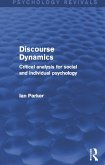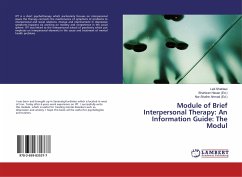Interpersonal communication has been investigated within various contrasting theoretical frameworks, including psychological ones. However, there is little consensus when it comes to establishing a theoretical scaffolding that makes it possible to understand and explain this phenomenon and its basic underpinnings. In this book, it is argued that this state of affairs reflects a host of problems related to foundational issues in psychology regarding dualistic theorising. Exemplified by cognitivistic and neuroscientific perspectives on interpersonal communication, the dualistic problems are critically expounded with a special reference to evolving a non-dualistic approach based on the ecological psychology of James J. Gibson. Framing the outline for an ecological psychological approach to interpersonal communication requires the Gibsonian key notion of affordance to take centre stage in terms of theorising. Indeed, interpersonal communication is thoroughly framed in terms of affordances; that is to say, it is affordanised. The book will be useful for students and scholars with an interest in understanding interpersonal communication and its theoretical basis.
Bitte wählen Sie Ihr Anliegen aus.
Rechnungen
Retourenschein anfordern
Bestellstatus
Storno








